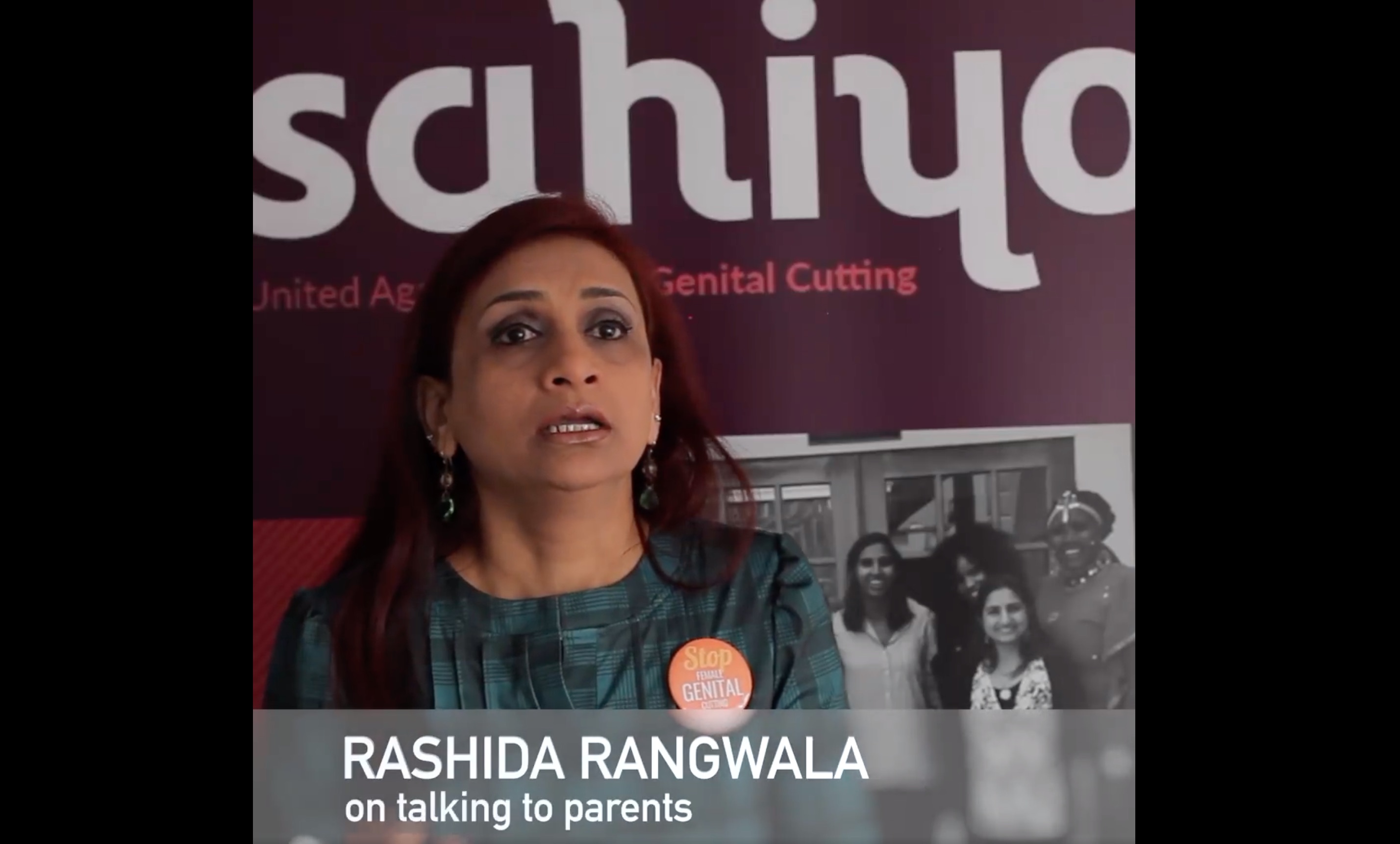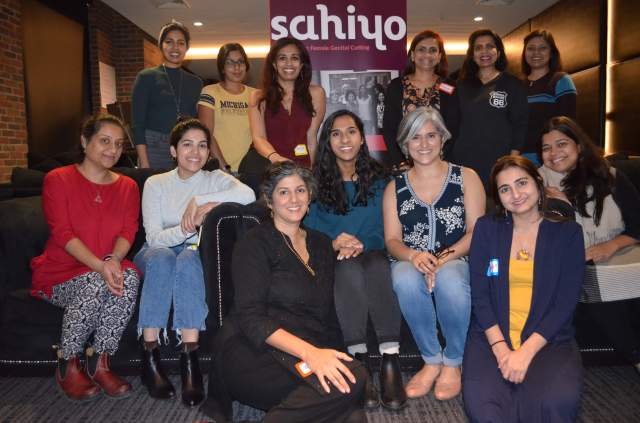By Rashida Rangwala
In March 2019, I attended my second Sahiyo Activist Retreat. For me it was an occasion to meet friends I had made last year at the 2018 retreat, share the progress I had made as an activist over the course of the past year, and demonstrate how much the first retreat had helped me in achieving that progress. My anti-female genital mutilation/cutting (FGM/C) activism has involved talking to reporters and young students ranging in age from high schoolers to college students about the practice of FGM/C in the Bohra community. I have also counseled and educated young mothers and girls on FGM/C and its harmful impact on the girl child.
I learned at the retreat to take a step back, slow down and listen to the pro-FGM/C people. Don’t make them so angry that they won’t talk to you and you reach a zero communication status. Give them a fair hearing, educate them, dispel misconceptions, break—slowly, but surely—break whatever resistance they have and poke holes in their thinking process until it completely falls apart, until they think for themselves, “Oh, wait a minute, I think I’m not going to do it to my daughter.” Start talking to the mother early and make her strong with knowledge about the harmful impacts of the procedure, so that when her child is seven years old, she makes an informed decision.
I spoke to a high school student that Sahiyo connected me with. She was writing a paper for her school project, interviewed me, and cried a little bit with me when I shared my story with her. I sent her pictures of myself to be used when she made her presentation. In the past, I would only give a name when I shared my story. But I realized that unless you have a picture to associate with the name, people can’t relate to your story on the same personal level. I’m now able to give my picture and have become more public when I share my story, something I didn’t do before the Sahiyo retreat because I was afraid to do so.

Watch video here.
Right at the beginning, on day one of the Sahiyo Retreat, I was happy to see that we had nearly doubled the number of anti-FGM/C activist participants attending the retreat from 11 in 2018 at the first retreat to 21 in 2019. This time around, I had the chance to become acquainted with women from ages 21-28 years old. Talking to them over the course of the 3-days was very insightful. What amazed me was how self aware these young girls were about FGM/C. For me, FGM/C was vague knowledge that was always there in the back of my brain, but these girls knew exactly what had happened to them and were so aware of its consequences and so vocal about sharing their stories and being against it. That was a big insight for me. Perhaps this generational change could be because of social media; it’s in the news. They do have that advantage, which my generation did not. They have more sources of information today.
I was impressed with their courageous resolve to bring about change in thought in the Bohra community. To me, these young women were simply brave souls. Some of these young FGM/C survivors had opened up conversations with their mothers about performing the procedure on them. While others had yet to speak to their mothers about FGM/C, they were in the process of building up the stamina they needed to take up that challenging task. I had a chance to tell them, “Don’t delay it.” It’s too late for me. My mom passed away and I never got to talk to her.
It was amazing to see the collaboration between generations of women at this year’s retreat. We are certainly making progress in creating awareness in our community about how harmful FGM/C is to the girl child and we are bringing about a change in the thought process of the new generation so that they will abandon FGM/C. I am looking forward to the 2020 retreat and how it will spread our message slowly, but organically, one activist at a time.

